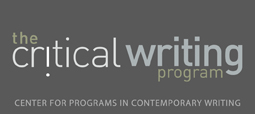Criminology
An Overview of the Discipline
The American Society of Criminology describes criminology as addressing the "etiology, prevention, control, and treatment of crime and delinquency. This includes the measurement and detection of crime, legislation, the practice of criminal law, as well as a review of the law enforcement, judicial, and correctional systems." The Department of Criminology at the University of Pennsylvania extends this characterization to include the study of a wide range of victims and actors with research from a host of related disciplines including public health, statistics, psychology, epidemiology, sociology, law, and the neurosciences. The University of Pennsylvania has the longest continuous program of research and teaching in criminology of any American university, with a rich history, strong tradition, and distinguished group of alumni.
Subdisciplines
- Nuerocriminology
- Criminal Psychology
- Criminal Sociology
- Criminal Practice
- Supreme Court Litigation
Writing in the Discipline
Goal
The goal of criminology is to investigate why people commit crime. In order to do this, Criminologists develop theories which are sets of principles that explain how phenomena are related. The next step is to gather data in order to test the theory. In recent years criminological studies are increasingly being used to advise policy-making. Judicial criminology works to defend a side of judicial procedure or rulings.
Reasoning
Student work is largely explanatory, while professional work can be either justificatory or explanatory based on the sub-discipline. Criminal practice and Supreme Court litigation are justificatory, as affirmation and critique of a position are the main goal. Other disciplines in criminology, such as policy advising, are explanatory, coinciding with a focus on empirical analysis.
Evidence
The evidence used in criminology is highly varied and largely dependent on subdiscipline and audience. Writing intended for a public audience generally uses experience, investigation, and empirical research. Specialized writing for scholars in the field is often quantitative. Moreover, the work done within law has a core dependency on precedence.
Authorship
The field is predominantly collaborative. Criminology research builds on theoretical and quantitative studies. Law writing depends on precedence of prior decisions, and also contributes to a constantly fluctuating field of scholarly data. Litigation in particular is entirely collaborative.
The Writing Process
Common Errors in Student Writing
Professor Freda Adler suggests that students often grasp concepts but fail to expand and apply knowledge. Professor Stephanos Bibas believes that students often attempt to disprove an opinion by taking the argument out of context or over-claiming a gap in logic that does not warrant abandoning the entire argument. Additionally, student writing may not break an argument down into logical steps.
Genre
Professional Writing
Criminology has a wide range of professional writing that includes scholarly research intended for experts, position papers intended for policy-making, articles prepared for a public audience, and discussions of law and litigation. Writing intended for a public audience has two separate functions: reporting of scientific investigations or experiences, and synthesizing empirical research and data in non-scientific terms. Quantitative work reporting new findings rests on entirely explanatory reasoning, and briefs arguing a stance rely on justificatory reasoning with a basis in precedence.
Additional Resources
Recommended References for Citation Practices in the Field
- The Bluebook
- Chicago Manual of Style
- Strunk & White's Elements of Style
- Brian Garner's The Redbook
The University of Pennsylvania Department of Criminology:
Website
© 2013 The University of Pennsylvania
Meet the Professors
Dr. Freda Adler
"A common student error is getting tied into the confines of 'how do I answer this exactly'..." More...
"Writing needs to look like speaking...'" More...

